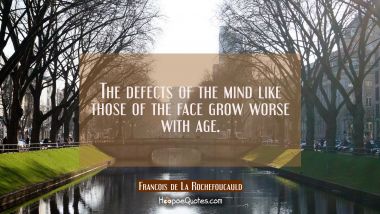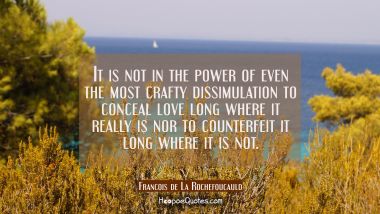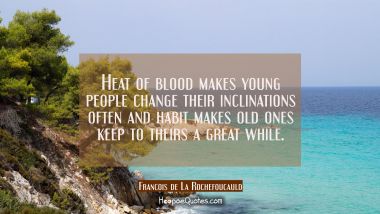
Francois de La Rochefoucauld
François VI, Duc de La Rochefoucauld, Prince de Marcillac (15 September 1613 – 17 March 1680) was a noted French author of maxims and memoirs. It is said that his world-view was clear-eyed and urbane, and that he neither condemned human conduct nor sentimentally celebrated it.
Enjoy the best Francois de La Rochefoucauld picture quotes.
Read more about Francois de La Rochefoucauld on Wikipedia.
It is a great act of cleverness to be able to conceal one's being clever.



























































































































![[50+ Images] Birthday Wishes for Someone Special in Your Life Quotes](/media/k2/items/cache/b1dbe5e313fb0e0a26b2b36062a36d3a_M.jpg)

